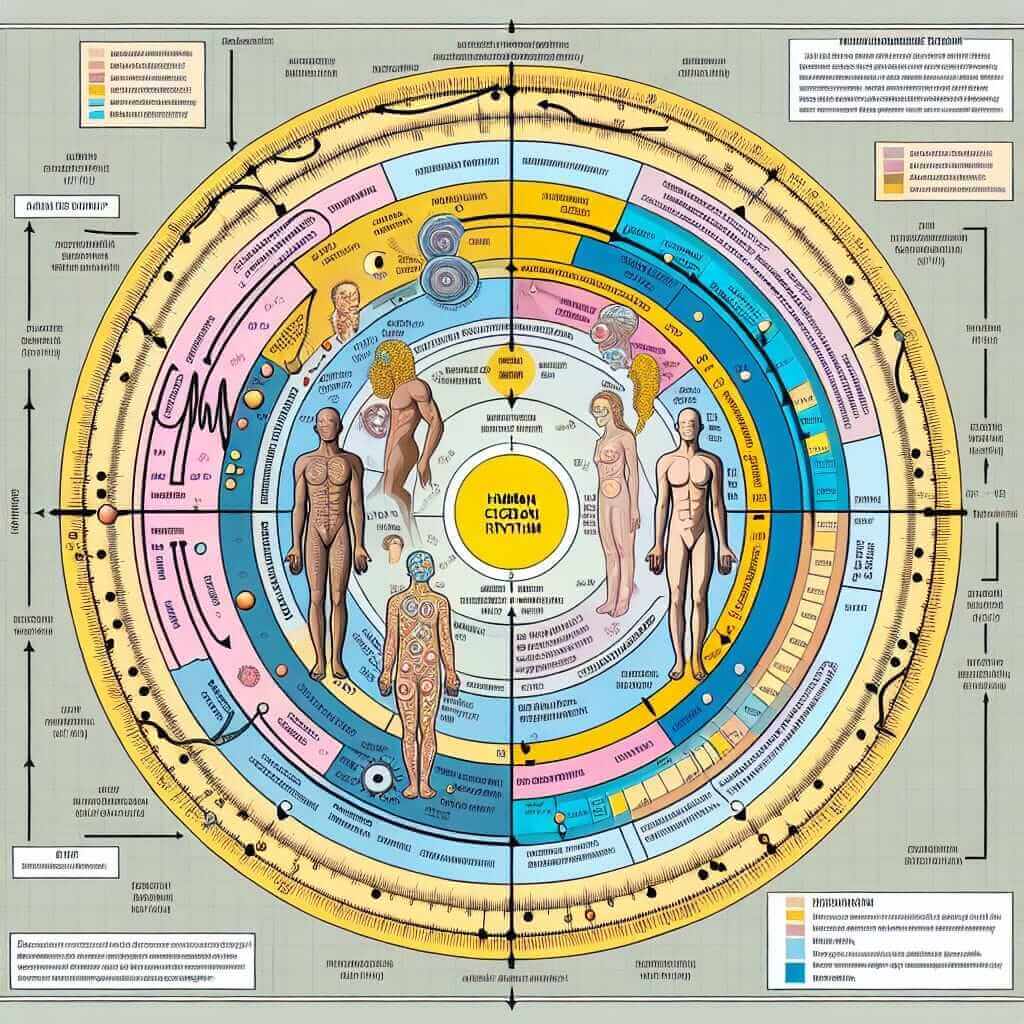As an IELTS instructor with over 20 years of experience, I often encounter students who feel overwhelmed by the sheer breadth of topics that could arise in the IELTS Speaking test. One such topic is the concept of the “biological clock.” While it might sound daunting at first, understanding this concept and its implications can significantly boost your confidence and performance in the exam.
What Does “Biological Clock” Mean in the Context of IELTS?
Firstly, let’s clarify what we mean by “biological clock” in an IELTS context. We are not talking about a physical clock, but rather the internal processes within our bodies that regulate our sleep-wake cycles, hormone release, and other bodily functions. This internal rhythm, also known as the circadian rhythm, is influenced by external cues like daylight and temperature.
 Circadian Rhythm Diagram
Circadian Rhythm Diagram
The IELTS Speaking test often explores broader societal or personal issues. So, when discussing the “biological clock,” be prepared to:
- Describe how it functions: Briefly explain the concept of the circadian rhythm and its impact on our daily lives.
- Discuss its implications: This could involve the impact of shift work on health, the challenges of jet lag, or the effects of aging on our biological clocks.
- Share your personal experiences: Relate the topic to your own life – do you consider yourself a “morning person” or a “night owl”? How does your biological clock affect your productivity?
How to Talk About the “Biological Clock” Effectively in Your IELTS Speaking Test
Here are some key points to remember when this topic emerges:
1. Use Accurate Vocabulary
- Circadian rhythm: This is the scientific term for the biological clock, and using it demonstrates your vocabulary range.
- Sleep-wake cycle: This refers to the natural pattern of sleep and wakefulness.
- Melatonin: This hormone regulates sleep.
- Jet lag: The disruption of the circadian rhythm caused by travel across time zones.
- Shift work: Employment that requires working outside of the traditional daytime hours.
2. Provide Specific Examples
Instead of making general statements, use concrete examples to illustrate your points:
- Instead of saying: “Shift work can be bad for your health.”
- Say: “Studies have shown that people who frequently work night shifts are at a higher risk of developing cardiovascular diseases and sleep disorders due to the disruption of their circadian rhythm.”
3. Express Your Opinions Clearly
The IELTS Speaking test assesses your ability to express your thoughts and opinions. Don’t be afraid to share your personal views on topics like:
- The ideal sleep schedule: “I believe that waking up early is beneficial because it allows me to be more productive throughout the day.”
- The impact of technology: “The constant use of electronic devices before bed can interfere with our sleep patterns by suppressing melatonin production.”
Sample IELTS Speaking Questions & Possible Responses
Examiner: Some people believe that our biological clock determines whether we are a “morning person” or a “night owl.” What are your thoughts?
Candidate: “I tend to agree. I’ve always been more productive in the mornings. I wake up feeling energized and focused. I think this is because my circadian rhythm is naturally aligned with the daylight hours. However, I know people who function best late at night. They feel most creative and alert during those hours. So, while we can try to adjust our schedules, our internal clock does seem to play a significant role.”
Examiner: What are the effects of modern lifestyles on our natural sleep patterns?
Candidate: “Modern lifestyles, especially with the advent of technology, have significantly impacted our sleep. We are constantly exposed to artificial light from screens, which disrupts melatonin production, a crucial hormone for regulating our sleep-wake cycle. This can lead to sleep deprivation and other health issues.”
In Conclusion
While the topic of the “biological clock” might seem complex, remember that the IELTS Speaking test is not about demonstrating expert knowledge. It’s about showcasing your ability to communicate effectively in English. By understanding the key concepts, using relevant vocabulary, and expressing your opinions clearly, you can confidently tackle any questions related to this fascinating aspect of human biology.


